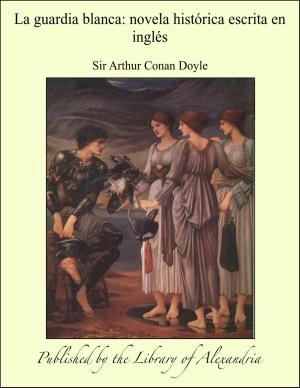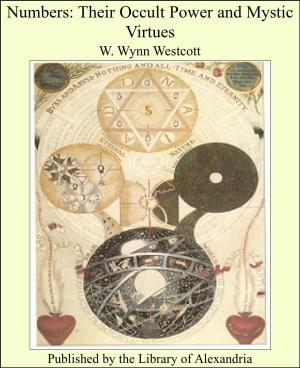Histology of the Blood: Normal and Pathological
Nonfiction, Religion & Spirituality, New Age, History, Fiction & Literature| Author: | Paul Ehrlich & Adolf Lazarus | ISBN: | 9781465576309 |
| Publisher: | Library of Alexandria | Publication: | March 8, 2015 |
| Imprint: | Language: | English |
| Author: | Paul Ehrlich & Adolf Lazarus |
| ISBN: | 9781465576309 |
| Publisher: | Library of Alexandria |
| Publication: | March 8, 2015 |
| Imprint: | |
| Language: | English |
In no department of Pathology has advance been so fitful and interrupted as in that dealing with blood changes in various forms of disease, though none now offers a field that promises such an abundant return for an equal expenditure of time and labour. Observations of great importance were early made by Wharton Jones, Waller, and Hughes Bennett in this country, and by Virchow and Max Schultze in Germany. Not, however, until the decade ending in 1890 was it realised what a large amount of new work on the corpuscular elements of the blood had been done by Hayem, and by Ehrlich and his pupils. As successive papers were published, especially from German laboratories, it became evident that the systematic study of the blood by various new methods was resulting in the acquisition of a large number of facts bearing on the pathology of the blood; though it was still difficult to localise many of the normal hæmatogenetic processes. The production of the various cells under pathological conditions, where so many new factors are introduced, must necessarily be enshrouded in even greater obscurity and could only be accurately determined by patient investigation, a careful arrangement and study of facts, and cautious deduction from accumulated and classified observations. The pathology of the blood, especially of the corpuscular elements, though one of the most interesting, is certainly one of the most confusing, of all departments of pathology, and to those who have not given almost undivided attention to this subject it is extremely difficult to obtain a comprehensive and accurate view of the blood in disease. It is for this reason that we welcome the present work in its English garb. Professor Ehrlich by his careful and extended observations on the blood has qualified himself to give a bird's-eye view of the subject, such as few if any are capable of offering; and his book now so well translated by Mr. Myers must remain one of the classical works on blood in disease and on blood diseases, and in introducing it to English readers Mr. Myers makes an important contribution to the accurate study of hæmal pathology in this country.
In no department of Pathology has advance been so fitful and interrupted as in that dealing with blood changes in various forms of disease, though none now offers a field that promises such an abundant return for an equal expenditure of time and labour. Observations of great importance were early made by Wharton Jones, Waller, and Hughes Bennett in this country, and by Virchow and Max Schultze in Germany. Not, however, until the decade ending in 1890 was it realised what a large amount of new work on the corpuscular elements of the blood had been done by Hayem, and by Ehrlich and his pupils. As successive papers were published, especially from German laboratories, it became evident that the systematic study of the blood by various new methods was resulting in the acquisition of a large number of facts bearing on the pathology of the blood; though it was still difficult to localise many of the normal hæmatogenetic processes. The production of the various cells under pathological conditions, where so many new factors are introduced, must necessarily be enshrouded in even greater obscurity and could only be accurately determined by patient investigation, a careful arrangement and study of facts, and cautious deduction from accumulated and classified observations. The pathology of the blood, especially of the corpuscular elements, though one of the most interesting, is certainly one of the most confusing, of all departments of pathology, and to those who have not given almost undivided attention to this subject it is extremely difficult to obtain a comprehensive and accurate view of the blood in disease. It is for this reason that we welcome the present work in its English garb. Professor Ehrlich by his careful and extended observations on the blood has qualified himself to give a bird's-eye view of the subject, such as few if any are capable of offering; and his book now so well translated by Mr. Myers must remain one of the classical works on blood in disease and on blood diseases, and in introducing it to English readers Mr. Myers makes an important contribution to the accurate study of hæmal pathology in this country.















